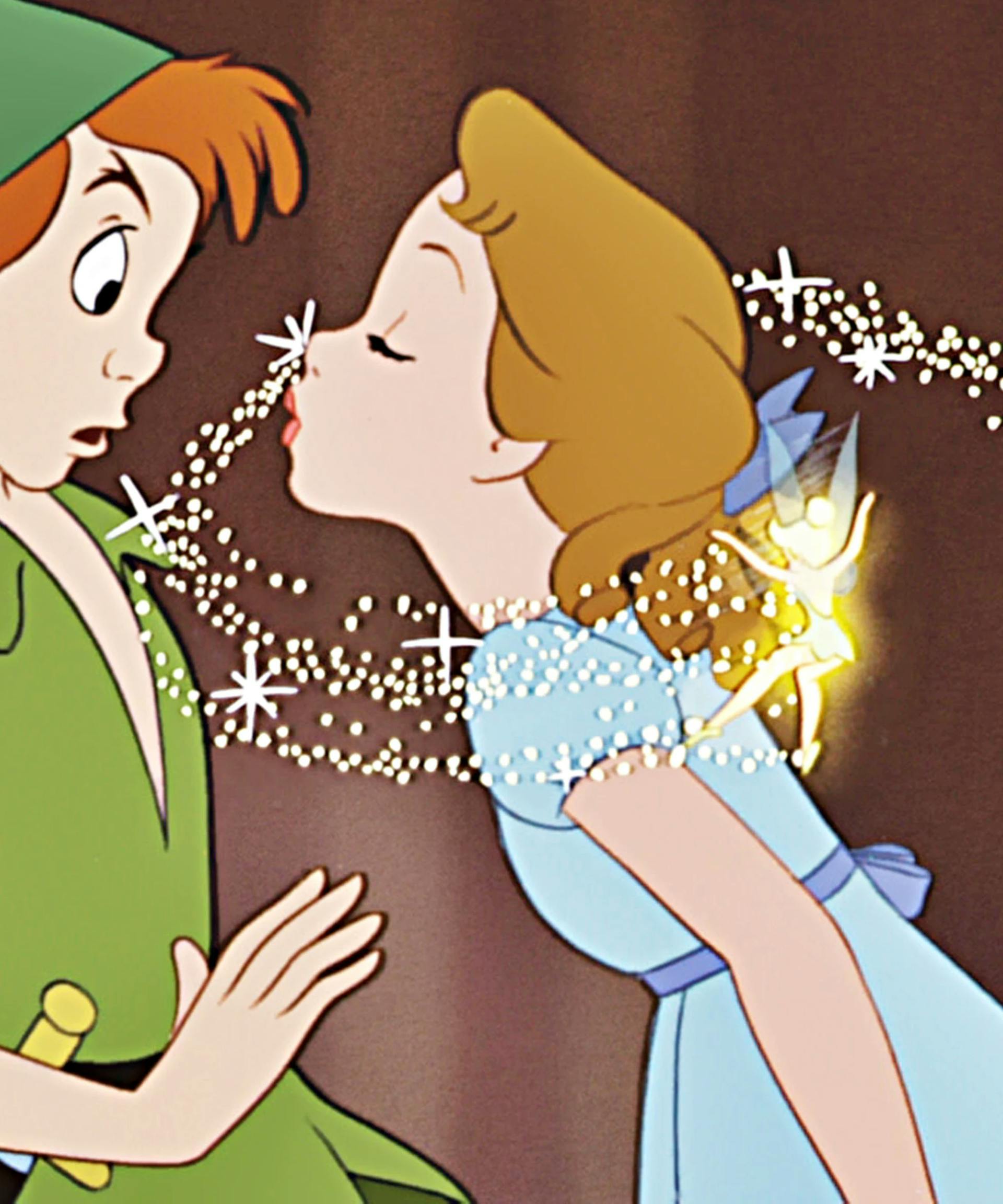Beware Of Dating Guys With Peter Pan Syndrome
One thing I’ll never tire of is rewatching old Disney movies from my childhood and I'll always have a soft spot in my heart for “Peter Pan.” However, as I got older, I realized something much darker about his story.

Peter's main personality trait is that he refuses to grow up, a trait that we, unfortunately, see in many young men today. This causes him to treat those who care about him like garbage (*cough* Wendy), and while he’s avoiding responsibilities, he’s also avoiding a chance at a lifetime of happiness. This behavior is so common in real life that it's become known colloquially as Peter Pan Syndrome.
A Pathological Refusal to Grow Up
Though it’s not a diagnosable psychological disorder but more of a psychological and social phenomenon, Peter Pan Syndrome was first coined by psychologist Dr. Dan Kiley in his 1983 book, Peter Pan Syndrome: Men Who Never Have Grown Up. Although both women and men can have Peter Pan Syndrome, it’s more common in men, which is why they’re the focus of Kiley’s book.

According to Better Help, a popular online therapist app, Peter Pan Syndrome is when “an adult doesn't want to mature and take on the responsibilities of someone their age...how Peter Pan Syndrome presents itself may vary from person to person. The typical sufferer, however, is someone (usually a man) who does not want to enter adult life.”
Though it’s normal to not want to grow up (let’s be real, growing up sucks) and to still embrace some of your childhood interests (hence my love for Disney Princesses), there’s a big difference between being young at heart and refusing to mature. For example, a guy with Peter Pan Syndrome probably never got past his college partying phase and shows up to work hungover, if he shows up to work at all. Or it can be a guy who doesn’t want to commit to an adult relationship and hooks up to experience intimacy.

One of the main aspects of Peter Pan Syndrome is a lack of maturity. Psychologist Nathan Brandon writes, "Maturity level is a factor in Peter Pan Syndrome as those who exhibit these behaviors are typically behaving in ways that we might consider someone who is an adolescent to behave. It seems to be more about specific types of immature behaviors and the extent to which a person’s maturity level doesn’t match their age in what we might expect in an adult (e.g., being responsible, emotional maturity, being in a committed relationship, or being financially stable) or meeting certain developmental milestones (e.g., graduating from college, starting a career, getting married, or having children). In this way, we can think of Peter Pan Syndrome as a sort of arrested development at the adolescent stage of life."
There are many potential causes to Peter Pan Syndrome like a lack of strong leadership as a child or overprotective parents, but it also requires an enabler, which is where the Wendy Syndrome comes into play.
What about the Wendy Syndrome?
As a character, it’s hard not to love Wendy Darling. She’s a sweet and imaginative girl who doesn’t have a mean bone in her body and wants nothing more than to live a happy life with a family of her own someday. Her feminine and maternal nature is what makes her such a good sister to her two brothers and will likely make her a wonderful wife and mother when the time comes. Like Peter, she hates the idea of growing up someday, but she also recognizes that it’s an inevitable part of life.

Though both men and women can suffer from Peter Pan Syndrome, women who fall for and tolerate guys with Peter Pan Syndrome have Wendy Syndrome. According to Science Daily, “The term ‘Wendy Syndrome’ [describes] women who act like mothers with their partners or people close to them. Humbelina Robles stresses that ‘Wendy is the woman behind Peter Pan. There must be someone who deals with the things Peter Pan doesn’t do in order for Peter Pan to exist.’”
Women with Wendy Syndrome are often people pleasers and like to help others, which can naturally put them in a position to enable Peter Pans without even knowing it. What can begin as seeking out romantic relationships with men with Peter Pan Syndrome can also lead to becoming an overprotective mother and infantilizing your children into learned helplessness.

I’m not going to lie, I was surprised to read about this when I was researching for this article. I’ve always been a people pleaser and have been working on shedding that habit, but never thought it contributed to me falling for guys with Peter Pan Syndrome. Though it’s noble to help others, it’s important to know the difference between kindness and letting people walk all over you.
How To Not Fall for a Guy with Peter Pan Syndrome
It can be easy to fall for a guy with Peter Pan Syndrome (yep, I’ve been there) because he seems so fun and charming. He can also be hard to get over because you often don’t realize that something is wrong until you’re in too deep. Sure, his drinking habits may seem fun when you’re in college, but they’ll come across as unstable when you graduate and have a job that you have to worry about in the morning.
Signs that the guy you’re crushing on has Peter Pan Syndrome include recklessness, impulsivity, immaturity, partying too much, and the inability to commit. Many of these signs seem attractive at first because they’re similar to the bad boy archetype, but you shouldn’t marry a guy like this. It’s best to break it off the second you realize that he’s a Peter Pan to spare yourself the heartbreak and the wasted time of trying to change him.

Though a guy with Peter Pan Syndrome can change, it's not your job to turn him around or "fix him." He'll either figure out his life or he won't, and you sticking around will only result in heartbreak and resentment of his inability to grow up.
But Could He Change?
When I asked myself this question, I thought of pop culture examples of men with Peter Pan Syndrome. Some are funny like Nick and Schmidt from New Girl, and some are douchebags like Peter Weber from The Bachelor franchise and Jax Taylor, a former cast member from the hit Bravo reality series Vanderpump Rules.

Unfortunately, one characteristic of Peter Pan Syndrome can be narcissism (which makes sense because Peter Pan was such a narcissist), and narcissists rarely change. A great example of someone with narcissistic traits changing is Jax Taylor from Vanderpump Rules, who only began to change his ways after his father’s death.
Before the loss of his father, Jax was the epitome of Peter Pan Syndrome. He treated his loved ones like garbage so he could live out his childhood for as long as possible, even cheating on his girlfriend, Brittany Cartwright, out of immaturity. Despite the threat of losing his loving girlfriend, that didn’t motivate him to change. It took a traumatic loss for him to realize that he had to make a lifestyle change.
Clinical psychologist Carla Marie Manly explains, “Loss, whether death of a family member or end of a relationship, can make us step back to assess our lives. When a Peter Pan loses a relationship as a result of self-indulgent or immature ways, the loss may be significant enough to trigger change. In the same way, if a Peter Pan loses a parent who was an idol or strong life force, that loss can trigger a life reassessment. Even losing a job as a result of not showing up or giving insufficient effort can — if the loss is serious enough — trigger change.”
Don’t get me wrong; I think it’s great that Jax Taylor made a lifestyle change and married Brittany Cartwright, who gave birth to their first child, Cruz, in April. He seems to be much happier with a beautiful wife and baby than he did when he refused to grow up, and I think that’s wonderful. However, a change this drastic is rare.
Closing Thoughts
As someone who has fallen for one too many Peter Pans, I suggest sparing yourself the heartache and moving on before you develop even a smidgen of hope that he’ll change.
We want to know what you think about Evie! Take the official Evie reader survey.